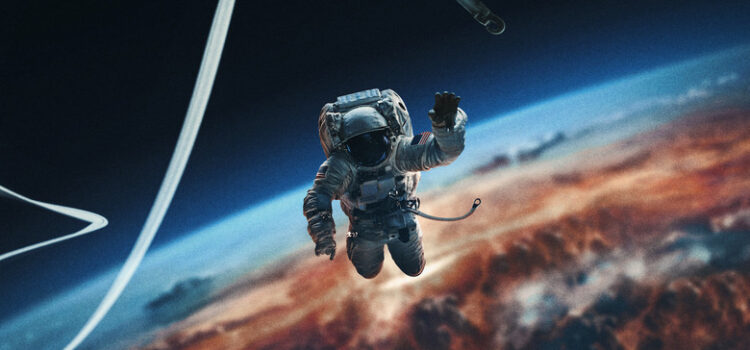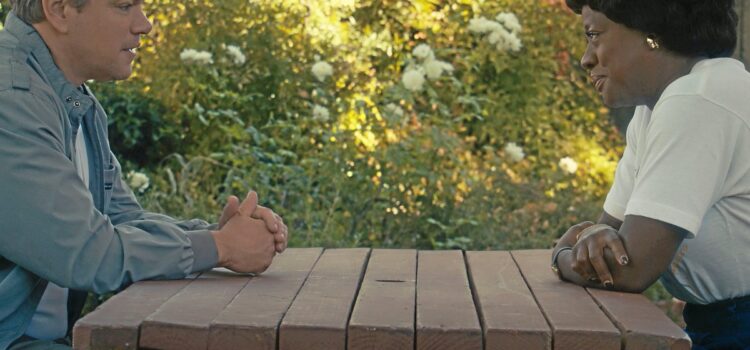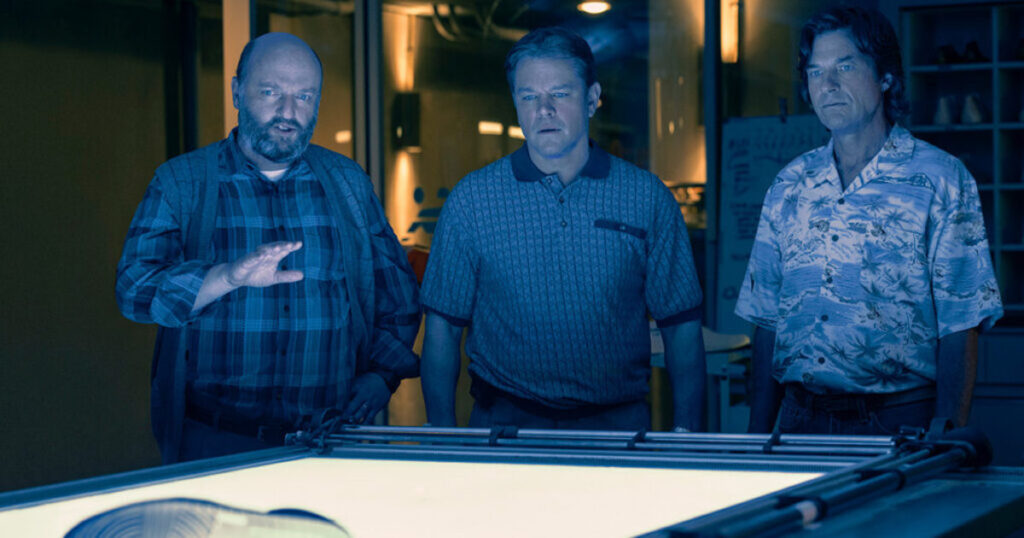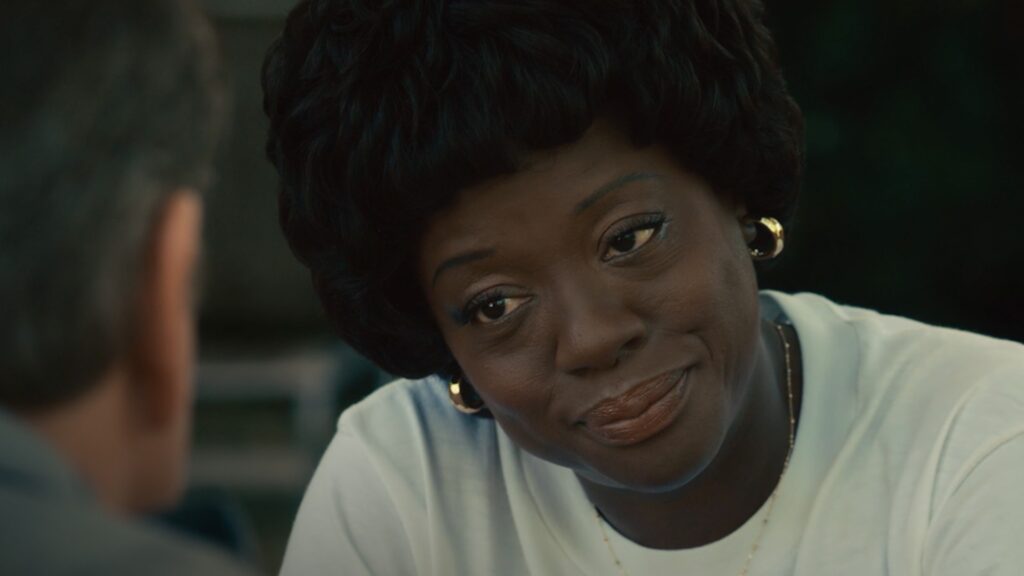By Alex McPherson
A lean, claustrophobic thrill ride, director Gabriela Cowperthwaite’s “I.S.S.” can’t quite make the most of its premise, but satisfies as an enjoyably paranoid B-movie.
Cowperthwaite’s film unfolds aboard the International Space Station in the near future: a bastion of human cooperation and scientific advancement, at least until now. Scientist Kira (Ariana DeBose) — a newcomer to space travel, whose perspective viewers largely see the film through — and Christian (John Gallagher Jr.), who tells everyone, repeatedly, that he has two daughters back home, journey via the Soyuz spacecraft to the I.S.S. They are welcomed by their charismatic commander Gordon (Chris Messina), as well as Russian cosmonauts Weronika (Masha Mashkova), Alexey (Pilou Asbaek), and leader Nicholai (Costa Ronin).
Everything seems to be going well enough, despite the Station’s cramped workspaces, lack of privacy, and the group’s language barriers. Politics are off limits, a romance is obviously aflame between Gordon and Weronika, and the guarded, straight-laced Kira is able to go about her work (the effects of low-gravity regenerative medicine on mice) sans dealing with personal drama on Earth. Politics, as Kira soon learns during a tense exchange about the song “Wind of Change,” is taboo.
That is, until it’s unavoidable. While looking out the window, Kira notices large flashes of light on Earth’s surface. She initially thinks they’re erupting volcanoes — they are actually nuclear bombs dropped in a war between America and Russia. Before long, Gordon and Nicholai receive orders from their respective countries to take the I.S.S. by any means necessary. The I.S.S. will also burn up upon re-entry to Earth’s atmosphere if nobody in mission control assists.
Kira and company are certainly in a predicament. Chaos ensues as nationalism, selfishness, impulsiveness, and shifting allegiances reign supreme. Who will survive? Can these scientists avoid mutually assured destruction?
Cowperthwaite (perhaps best known for the documentary “Blackfish”) presents a cruel, occasionally clunky look at how easily peace can be shattered when the unprecedented occurs. With a capable cast and immersive cinematography, “I.S.S.” is a cynically entertaining descent into chaos. Simplistic characters and formulaic plot beats hold it back, though, rendering the film more a lightweight piece of popcorn entertainment than a disquieting thriller.
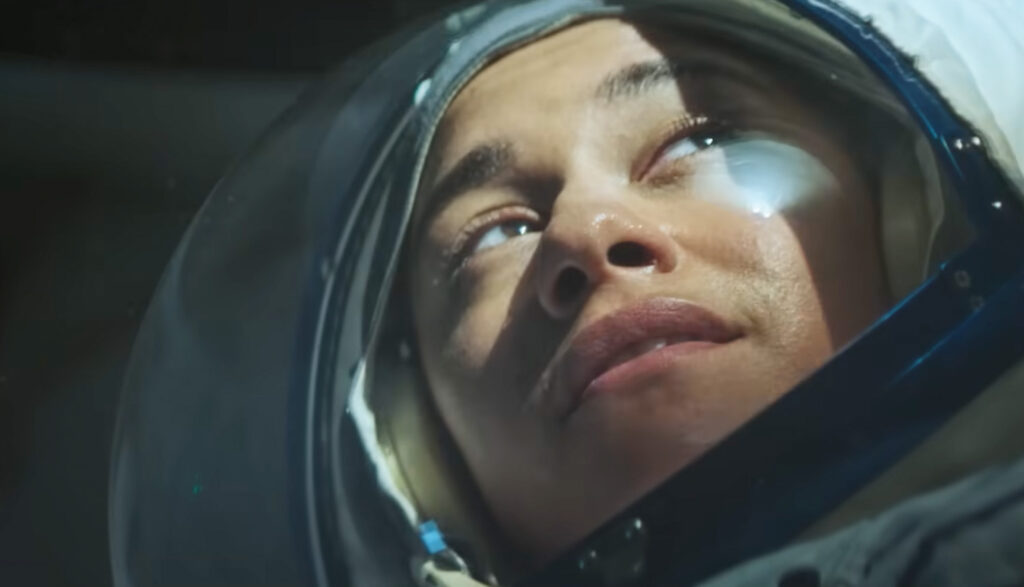
“I.S.S.” is most effective in its first half, as Kira and viewers quickly get acquainted with the space station and its inhabitants, observing the confined corridors and amiable-yet-cautious interactions. Everyone is aware of cultural tensions and doing their best to push them to the side. Geoffrey Wallace’s production design feels authentic and lived-in, and stellar visual effects believably simulate low-gravity, presenting stunning views of space and, later, the smoldering Earth below.
This is a smart location to set a thriller, plus a plausible near-future scenario, and cinematographer Nick Remy Matthews makes the most of it. The camera drifts through hallways, untethered like the scientists to their prior bonds and routines. Nowhere is safe on the I.S.S.. Cowperthwaite keeps viewers on their toes as eavesdroppers lurk behind corners and conversations are suddenly interrupted.
When the bombs drop and the orders come in, for example, Cowperthwaite effectively captures the awkwardness and simmering suspense within the group; Anne Nikitin’s jittery, ominous, slightly overused score cranks the dial even further. These quieter though no less impactful sequences — including a pulse-pounding outdoor repair — are gripping, largely thanks to Cowperthwaite’s direction and solid performances that elevate Nick Shafir’s screenplay.
DeBose gets a chance to show her range as the reserved, guileless Kira — a character wounded by a tragic and disappointing past throwing her all into her work. She’s more passive compared to the other crewmates, unsure who to believe and what to do once the situation spirals out of control. DeBose lends nuance to the role — letting the cracks shine through Kira’s façade early on that reflect her damaged past. Her performance is particularly effective in the first half, before Cowperthwaite reverts to narrative extremes that take precedence over character depth.
Messina lends charm and charisma to Gordon — the astronaut doing his best to keep everything under control — and Mashkova lends warmth, authority, and heartache as Weronika. Asbaek reveals hidden layers to the gruff Alexey, while Gallagher Jr. and Ronin are given less to work with and veer into cartoonish territory; paranoid, prideful characters who might or might not go off the deep end.
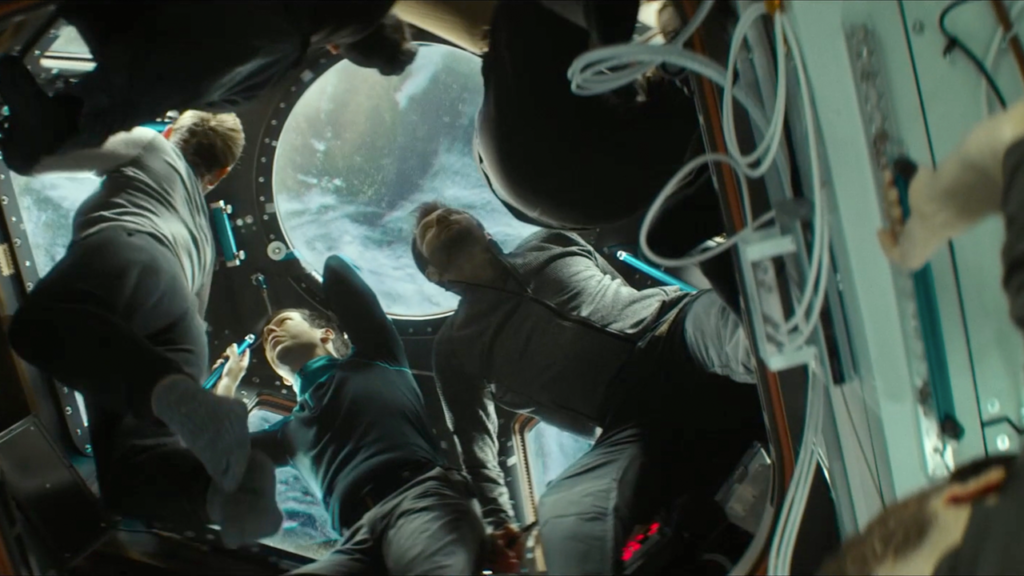
Indeed, notwithstanding a couple exceptions, the film doesn’t devote much time to developing these characters beyond who they are in their worst, most desperate moments. This could be due to the 95-minute runtime, but in its lack of cultural specificity (Cowperthwaite avoids delving too much into politics herself) and willingness to buck tradition, they’re reduced more to feelings than three-dimensional beings. They illuminate various elements of the human experience without giving us time or reason to get fully invested. As a result, they only rarely transcend archetypes.
Combined with some late-movie plot twists that take proceedings to preposterous levels, it’s difficult to become all that involved in the film’s drama. Nationalism and survival can certainly push people to act rashly, but “I.S.S.” ultimately feels too schematic for its own good. Some late-movie scuffles shift from harrowing to goofy, as Nikitin’s score blares and every actor tries to look as shocked as possible.
Still, so long as viewers don’t think too much about the carnage on display, “I.S.S.” remains engaging. As typical January movie fare goes, it soars high above the competition.
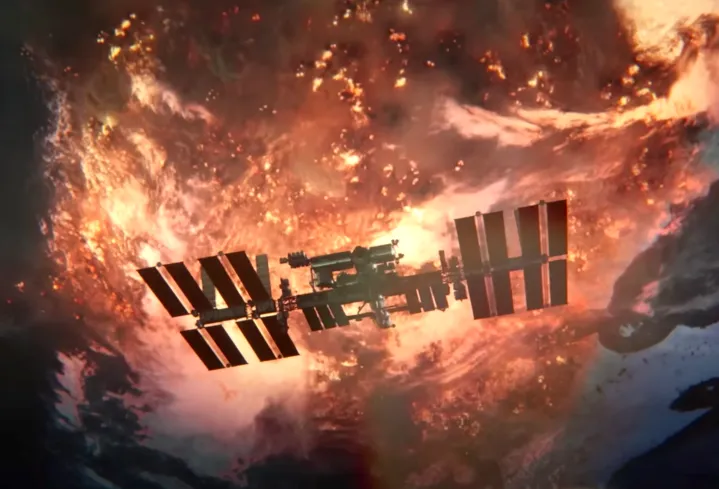
“I.S.S.” is a 2024 science fiction-thriller directed by Gabriela Cowperthwaite and stars Ariana DeBose, Chris Messina, John Gallagher Jr., Masha Mashkova, Costa Ronin and Pilou Asbaek. It runs 1 hour, 35 minutes and is rated R for some language and violence. It opens in theatres Jan. 19. Alex’s Grade: B
Alex McPherson is an unabashed pop culture nerd and a member of the St. Louis Film Critics Association.

